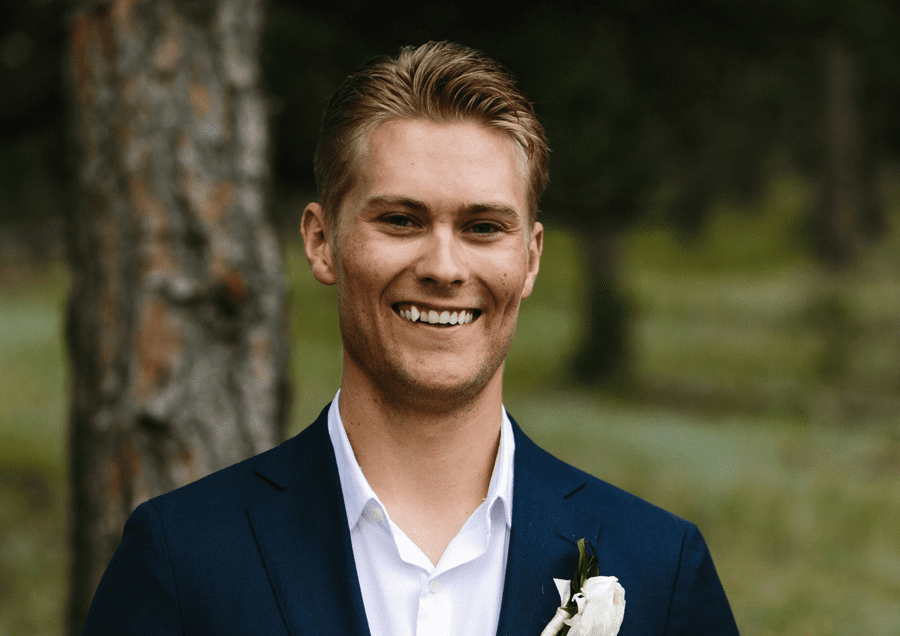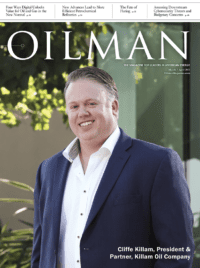Alan Alexeyev: Tell us a little bit about your current (or latest) position and what you do, as well as how you found a job?
Jordan Anderson: I am currently a technical sales engineer for Tenaris Sucker Rods in Williston, North Dakota. My role includes technical support for our customers, business development and providing feedback from our customers to our quality and R&D departments. The company I worked for was divesting the asset that I worked on, and my position along with it. The day I found out when my last day would be, I had a sales meeting with Tenaris and asked if they knew of any open positions. My current position was mentioned, and the rest is history.
AA: What inspired you to start a career in the oil and gas industry? How did you decide on becoming a petroleum engineer?
JA: Growing up in Williston, ND, exposed me to the oil and gas industry early in my life, and I always leaned toward an engineering career. Those factors lining up with the boom at the time, around 2012, led me to pursue a career in petroleum engineering.
AA: How valuable was it to get the university experience and has it helped you in the workplace where you meet people with diverse backgrounds?
JA: The university experience was extremely valuable. You don’t learn everything you need to know, but it gives you a great start. It highlights the benefits of working in diverse groups by cultivating an environment to learn from people with different backgrounds and perspectives.
AA: How did you find yourself transitioning from academia environment to the industry/corporate [world]? What would you tell people who are about to make such a transition?
JA: My transition was smooth but humbling at times. The old mantra of forgetting everything you learned in school and re-learning how things work in the industry did hold some truth. I would tell people to have confidence in their education but keep an open mind to the guidance and lessons to be learned from your colleagues.
AA: Has the industry taken initiatives to smoothly transition young professionals into the oil sector? What, if anything, could be done better?
JA: There are different approaches across the industry to transition young professionals, and most have their merits. I would say the transition is most affected by the supervisors of these young professionals. I have been incredibly lucky to have some great supervisors and mentors throughout my short time in the industry and would hope the same for everyone else beginning their career in oil and gas.
AA: The oil and gas industry has tons of conferences and events. Have you attended any of them? If so, how useful do you find them and what’s your takeaway from them?
JA: I mainly attended conferences and events during my time in academia, but I am planning on being more of a regular attendee once events reopen in person. I think they are incredibly useful for sharing knowledge across the industry and of course for valuable networking.
AA: What advice do you give to current college students who have an interest in the oil and gas industry? Should they pursue the career during these constant downturns?
JA: If you are passionate about the industry, and aware of its cyclical nature, and the effects of that, I would recommend pursuing a career in the industry. However, you may have to work hard to start a career in oil and gas right now.
AA: What main technical skills do you think will be needed for the industry in the near term based on your experience so far?
JA: Speaking from an engineering perspective, I would say a solid understanding of data analysis, and sound engineering fundamentals are key for success in the industry.
AA: What would you like to learn in the near future from experienced people who are in their mid-to-late careers?
JA: I would like insight from mid-to-late career folks on their career pathway, why they chose it and their retrospective view on their decision. For example, management or technical roles, self-employment, consulting, etc.
Alan is a graduate from the University of North Dakota with a Master's degree in Petroleum Engineering. He previously earned his BA in Mathematics from the University of Houston and a BS in Petroleum Engineering from the University of Wyoming. Alan is an active SPE member and has presented at petroleum conferences and exhibitions.





